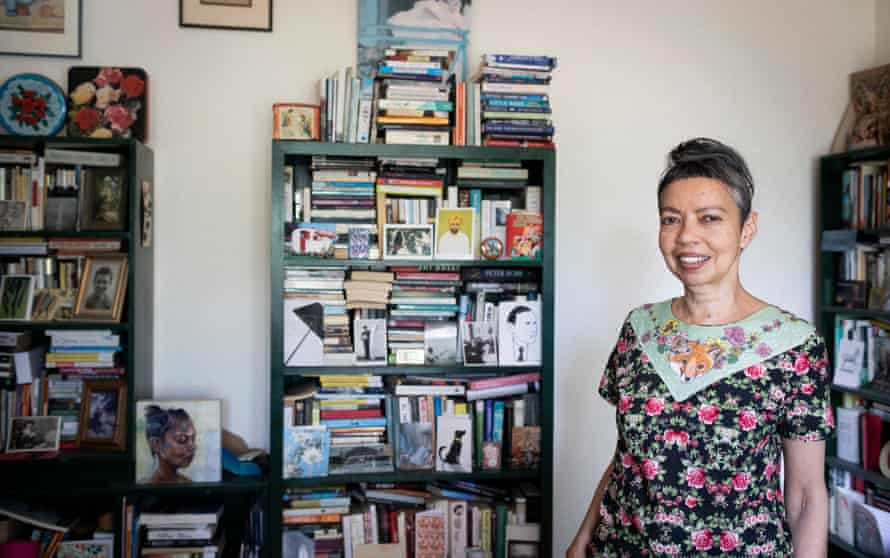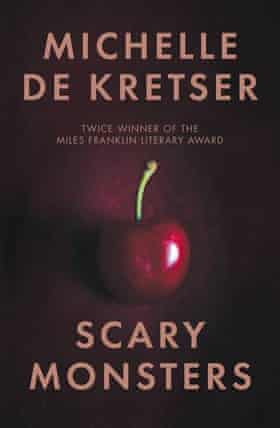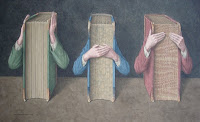 |
| Michelle de Kretser |
Michelle de Kretser turns the novel upside down: ‘My aim was to play with form’
Thu 14 Oct 2021 17.30 BST
About 15 minutes into our conversation, Michelle de Kretser turns the interview on its head: “We haven’t come to the question of form yet. What did you make of it?”
The two-time Miles Franklin award winner is on the verge of releasing her new book, Scary Monsters, and her apprehensiveness is palpable.
 |
| Michelle de Kretser |
In some respects it treads familiar territory: like de Kretser’s 1999 The Rose Grower, part of the book finds her back in France; as in 2012’s Questions of Travel, there’s a powerful thread of immigrant stories at its heart; like 2017’s acclaimed The Life to Come, she plays with different protagonists, different interconnected stories; and true to form, there are dogs of deep affection and dubious dentistry.
But De Kretser is not one to rest on her laurels. This is, after all, a book that flips things upside down too: in fact it is two books, with two front covers, one at each end.
Both versions come with imprint pages and epigraphs (Nietzsche: “The state is the coldest of all cold monsters”; and Du Bois: “How does it feel to be a problem?”). There are no clues from author or publisher as to where to begin.
“I knew I wanted to do that pretty early on,” De Kretser says. “This is a novel about migration, and what migration does is turn things upside down – events, lives – so what about a book you have to turn upside down? This was my modest way of upending the novel form … If a novel is a single continuous narrative, here is a novel that is not. My aim was to play with form, to mix it up a bit.”
Talking with De Kretser is an exhilarating time, even via the distancing medium of Zoom. She’s constantly probing and worrying away at ideas, a deep thinker – considered and considerate, cerebral but compassionate – with a light touch and inviting warmth.
“So many places approached me to write about my pandemic experience and after a while I had a set reply: ‘I have only the banalities of privilege to offer,’” she says, of enduring Covid lockdown. “‘I can’t get my favourite brand of pasta,’ you know? We miss people – of course – contact with friends and family. But on the other hand, I hesitate to complain about our lives at all. We have each other. We have work. We have a garden.”

The book is both devastating and very funny. Considered either apart or together, she has created two potent, memorable voices and stories: one set in the past, in Montpelier, is suffused with dread, awareness of violence against migrant women, the uncertainty of youth and European shadows; the other, in the sterile, brightly lit near-future of suburban Australia, explores a recognisably dehumanising government, pervasive consumerism and domestic disappointment. In one passage Lyle asks: “Which comes first, the future or the past?”
“These are both narratives of memory,” De Kretser says. “People are looking back and narrating events. And of course the past only comes into being from the vantage point of the future ...
“And they are narratives of migration. When you migrate the past is no longer a guide to how you should be or apprehend the world or how the world will apprehend you in the future.”
It’s just what long-time fans of her work might expect and hope for: sad and angry, playful and smart in equal measure. Nonetheless, De Kretser confesses to feeling nervous about it, uneasy at the idea that it will be seen as a “cheap bid for attention”; that readers might dismiss the whole thing as a gimmick.
She brings up American cultural theorist Sianne Ngai’s new book, Theory of the Gimmick: Aesthetic Judgement and the Capitalist Form. “My summary of her argument will be a travesty, but the gist of it is, when she’s talking about objects that we call gimmicks, she says it comes down to what we consider the worth of an object. If we have doubts about its worth, if we’re unsure whether we should have acquired it, does it enhance our lives or have we been conned in some way?
“And as I was reading this I thought: this is how migrants function in society. We are gimmicky citizens. Our worth is constantly called into question. Do we enhance Australia with diversity or are we undermining traditional Australian values? Does our spending, do our wages boost the economy or are we stealing Australian jobs?
“The gimmick, according to Ngai, is something that has an aura of inauthenticity. We suspect it. This is how migrants are viewed.” De Kretser’s sounds pleased as she makes this connection: “What better form for a novel that presents migrant stories than a gimmicky one?”

It’s hard to think of an author less likely than Michelle de Kretser to be perceived as gimmicky. Her work has such incredible integrity of purpose, generous and open even as she is dissecting and prosecuting the world’s injustices and inauthenticities. I put this to her and she demurs: “I’ve always had great faith in my readers.”


No comments:
Post a Comment